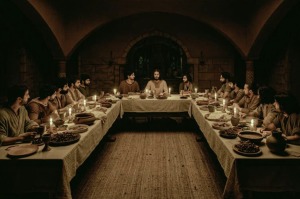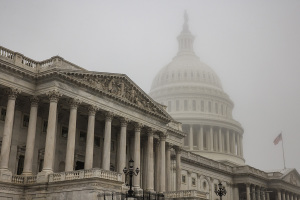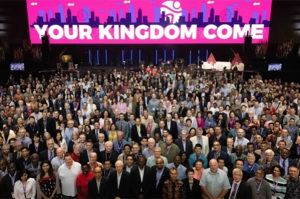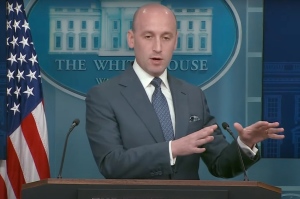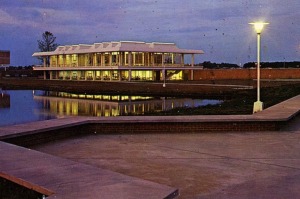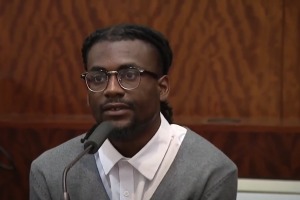Where Have All the Bold Pastors Gone?
During this election season, the issue of religion has come up on many occasions. But for the most part, we haven't heard from many pastors---except, for example, from the brave priest from Indiana, with his denunciation against the Obama administration's move to force Catholic agencies to fund contraceptives and abortifacients against their consciences.
Another outspoken minister has been Dr. Robert Jeffress of Dallas, who was castigated about half a year ago for stating he preferred a Christian politician to a Mormon one. He was simply quoting founding father John Jay, first Chief Justice of the United States Supreme Court, who said, "Providence has given to our people the choice of their rulers, and it is the duty, as well as the privilege and interest of our Christian nation to select and prefer Christians for their rulers" (October 12, 1816). First Chief Justice or not, one of only three authors of The Federalist Papers or no---that's too politically correct to say nowadays.
Many of the controversial issues of our day, such as abortion and marriage, have become political. But in reality, they are simply moral issues that have changed into political ones.
I think part of the reason we don't hear much from pastors these days is because of a misunderstanding of the law. Some fear---wrongly---that if they say anything viewed as a political statement, then they might lose their tax exempt status. I plan on addressing this point in a subsequent article.
In any event, we should remember that some biblical figures, like Moses and John the Baptist, spoke out against the rulers at the time and paid a price for it. Historically, being faithful to their God sometimes had a high price to it, as seen by those brave Christians fed to the lions in the arena rather than renounce their faith.
There's a great painting at the Art Institute of Chicago showing St. Ambrose rebuking Roman Emperor Theodosius (around the end of the 4th century) for an imperial massacre in Thessalonica. The bishop took his life in his hands by making such a pronouncement against the lord of the whole empire. Thankfully, Theodosius repented.
Thomas More wasn't so fortunate in his stance in refusing to give into King Henry VIII's demand for divine sanction for his divorce. More was beheaded for his courage to go against the king.
The price a bold pastor has to pay in our culture is generally a much smaller one than those sometimes demanded in the past---or even today in some of the world's hot spots, such as in the Middle East. There's an Iranian pastor on death row right now for having converted from Islam.
Historically, in the American context, pastors and the church have often led the way in societal reforms---some of which had political implications. Two-thirds of the members of the abolition society in 1835 were ministers of the gospel. Also, the anti-slavery Underground Railroad was run by churches.
For good or bad, there's no doubt that prohibition was led by ministers, churches, and laywomen.
The civil rights movement was essentially born in the basement of Dexter Avenue Baptist Church in Montgomery, led by their minister, Rev. Martin Luther King, Jr. on December 1, 1955, the night Rosa Parks was arrested for not giving up her seat on the bus after a hard day's work. Watch raw tapes of the civil rights marches, and you'll see many different Christian groups participating.
Before we even became a country, pastors (especially in New England) would preach election day sermons, not necessarily endorsing particular candidates, but explaining biblical civic duties. Georgetown-educated Dr. Donald Lutz, political science professor at the University of Houston, even notes that even the word "election" comes from the Bible and not from politics.
Dr. Donald Lutz told me, "Elections were designed by these Americans in the early era for a virtuous people to help identify who amongst are more virtuous. Who are those who are most likely to be among the elect, those who are most likely to be saved? Elections are an attempt to recognize those who are among the elect, those are more likely to have been saved and going to heaven. Therefore, we, in this country, expect those people who are elected to be virtuous."
Dr. Lutz added, "This drives the Europeans crazy. Why do we expect our president and our representatives to be good and Godly people? It's because this is the habit we got into in the very beginning. It's a Puritan notion, which we Catholics buy into right away. "
The professor notes that it wasn't enough that the candidate simply said that they were decent people. Their actions had to match their words: "And then, we would quiz them very carefully. How did you perform in the past? Were you God-fearing and were you pursuing the common good in the way you voted, the way you behaved, the way you acted? If not, I'm not going to vote for you. And so, we would filter upward men or women of greater virtue to higher office."
We are far removed from our Puritan roots. But I think some of their core principles still apply---especially the idea that the church should not completely abandon the political process.
For years, my pastor was the late Dr. D. James Kennedy, who noted, "Someone said to me, 'Do you think Christians should be involved in politics? That's dirty business.' I said, 'Of course not, you should leave it to the atheists; otherwise, you wouldn't have anything to complain about.' Well, we have got plenty to complain about today, because that is exactly what we've done."
















